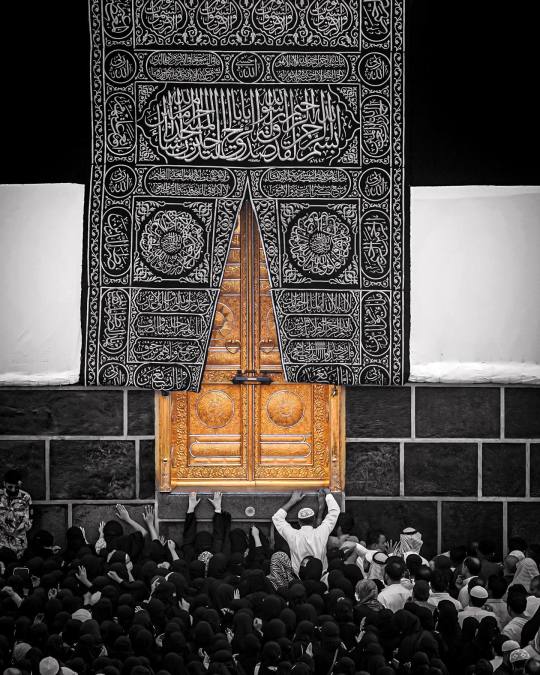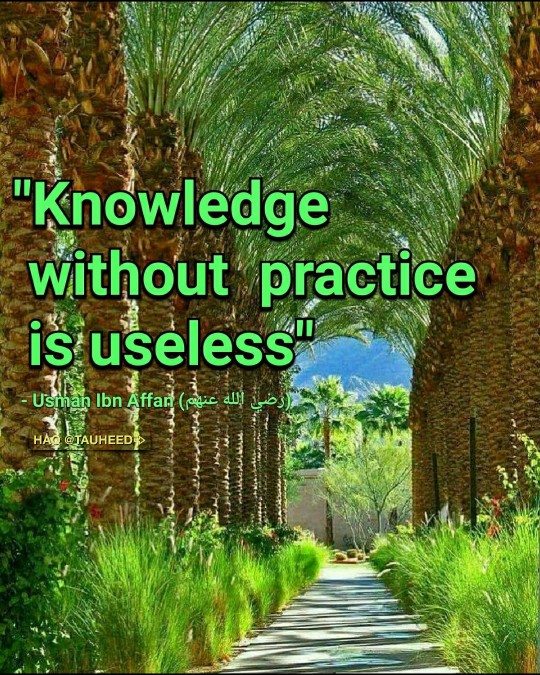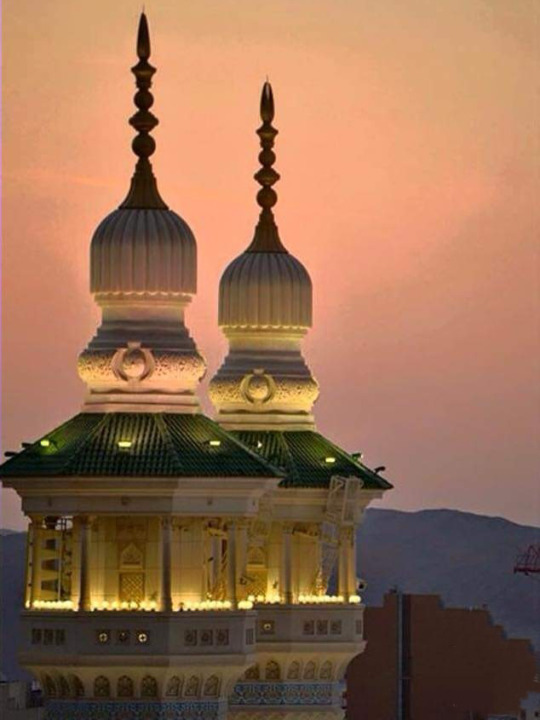#RadiAllahu Anhu
Text





#allah#prophet muhammed pbuh#islam#the quran#guidance#peace#duaa#salah#Prayer#tongue#RadiAllahu Anhu#peace be upon him#islamicquotes#love#mercy#blessings#people#faults#Aameen#surahs
0 notes
Text
Whoever listens to a verse of the Quran, it is a light for him.
Ibn Abbas (Radiallahu anhu)
#allah#god#islam#muslim#revert#reverthelp#reverthelp team#convert#new revert#new convert#new muslim#muslim revert#muslim convert#welcome to islam#revert to islam#convert to islam#how to convert to islam#prophet#muhammad#quran#sunnah#hadith#dua#pray#prayer#salah#help#religion#muslimah#quote
139 notes
·
View notes
Text

THREE STAGES TO TAHAJJUD
One of the most virtuous of the nawafil acts of worship is waking up in the middle of the night for tahajjud prayer. This is that special time when the doors of mercy are thrown open and the angels are dispersed, seeking out those in need of their Lord. Yet, how unfortunate our situation is that we are deprived from this great bounty.
“Their sides shun their beds in order to pray to their Lord in fear and hope…”(Quran, 32: 16)
Abu Hurayrah (radiallahu anhu) narrates that the Messenger of Allah (sallallahu alaihi wa sallam) said,“The best prayer after the obligatory prayers is the night prayer.” [Muslim]
I remember anytime one of the narrations regarding tahajjud would come up in a text, or was mentioned by one of our teachers, the students would eagerly ask how they could become regular in this blessed act. Here are a few suggestions based on their responses.
Stage 1 – I just can’t wake up
Despite your best efforts (asking a friend to call, multiple alarms, sleeping early, making a firm intention at night, etc.) if you simply cannot force yourself to get up, pray your tahajjud prayer before you go to sleep. Its time technically begins after Isha, so this can be a means of showing Allah that you are serious, and truly desirous of this great bounty. Couple this with dua admitting your inability and asking Allah for His bounty.
Stage 2 – I am sporadic in my tahajjud
If you are blessed to wake up for tahajjud on occasion, or get up most days, but miss a few here and there, be sure to “make-up” the prayer on the days that you don’t get up. And of course couple this with dua.
Umar (radiallahu anhu) narrates that“I heard the Messenger of Allah (sallallahu alaihi wa sallam) say, ‘Whenever one of you sleeps through his night devotions, or through a part of them, then, if you perform them between the Fajr (i.e after Ishraq) and Dhuhr prayer, you will receive the same reward as if you performed them at night.’” [Muslim]
Stage 3 – I regularly wake up for tahajjud
Alhamdulillah, if you are at this stage you need to ensure 3 things:
Give shukr every night that Allah allowed you take advantage of this great blessing.
Admit to Allah that while you are unworthy of such a blessing, you are in need of it.
Beg Allah that He allow you to wake up the following night as well.
May Allah, Most High, allow each of us to be regular in our tahajjud prayers!
Ismail Ahmed
#islam#quran#islamic#muslim#islamicquotes#pakistan#islamic group#muslim community#muslim countries#istanbul#tahujjud#islamicpost#islamicreminder#hadith#muslim ummah#makkah#allah#muslimah#jannah#alhamdulillah#prophetmuhammad#allahuakbar#salah#prayer#deen
44 notes
·
View notes
Text
I make dua and I don't stress over how it will come to be, for if Allah has guided me to make dua, then surely the answer will come with it
Umar ibn al-Khattab (radiallahu anhu)
99 notes
·
View notes
Text
Shaykh ul-Islām ibn Taymiyyah said:
As for the greeting on Eid, each person says to the other when meeting after the Eid prayer: Tabbaqal Allah Minna wa Minkum and Wa Ahalahul Allahu Alayka and what resembles that. This has been reported from a group of the Companions radiallahu anhu and they allowed it.
[Majmoo’ al-Fatawa (24/253)]
30 notes
·
View notes
Text
THIS IS OUR CALL
Our Call to The Ummah by Shaykh Muqbil bin Haadee (rahimahullaah)
1. We believe in Allah and His Names and Attributes, as they were mentioned in the Book of Allah and in the Sunnah of Messenger of Allah (sallalahu alaihi wasallam), without tahreef (distortion), nor ta’weel (figurative interpretation), nor tamtheel (making a likeness), nor tashbeeh (resemblance), nor ta’teel (denial).
2. We love the Companions (radiAllahu anhum) of the Messenger of Allah (sallalahu alaihi wasallam), and we hate those who speak against them. We believe that to speak ill of them is to speak ill of the Religion, because they are the ones who conveyed it to us. And we love the Family of the Prophet (sallalahu alaihi wasallam) with love that is permitted by the sharee’ah. ‘Imraan Ibn Husayn (radiAllahu anhu) said, “O people! Learn the knowledge of the religion from us, if you do not do so, then you will certainly be misguided.” (al-Kifaayah (p.15) of al-Khateeb al Baghdaadee)
3. We love the People of Hadeeth and all of the Salaf of the Ummah from Ahlus-Sunnah. Imam Shaatibee (d.790H) (rahimahullah) said, “The Salafu-Saalih, the Companions, the taabi’een and their successors knew the Qur’aan, its sciences and its meanings the best.” (al-Muwaafiqaat (2/79) of ash-Shaatibee).
4. We despise ‘ilmul-kalaam (knowledge of theological rhetoric), and we view it to be from amongst the greatest reasons for the division in the Ummah.
5. We do not accept anything from the books of fiqh (jurisprudence), nor from the books of tafseer (explanation of the Qur’aan), nor from the ancient stories, nor from the Seerah (biography) of the Prophet (sallalahu alaihi wasallam), except that which has confirmed from Allah or from His Messenger (sallalahu alaihi wasallam). We do not mean that we have rejected them, nor do we claim that we are not in need of them. Rather, we benefit from the discoveries of our Scholars and th jurists and other than them. However, we do not accept a ruling, except with an authentic proof.
6. We do not write in our books, nor do we cover in our lessons, nor do we give sermons with anything except the Qur’aan or the authentic and authoritative hadeeth. And we detest that emanates from many books and admonishers in terms of false stories and weak and fabricated ahaadeeth. ‘Abdullah Ibnul-Mubaarak (d.181H) (rahimahullah) said, “The authentic ahaadeeth are sufficient and the weak ahaadeeth are not needed.” (al-Jaami’ li-Aklaaqir-Raawee (2/159) of as-Suyootee).
7. We do not perform takfeer upon any Muslim due to any sin, except Shirk with Allah, or the abandonment of Prayer, or apostasy. We seek refuge in Allah for that.
8. We believe that the Qur’aan is the Speech of Allah, it is not created.
9. We hold that our ‘obligation is to co-operate with the group that traverses the methodology of the Book and the Sunnah, and what thee Salah of the Ummah were upon: in terms of calling to Allah the Glorified, and being sincere in worship of Him, and warning from Shirk,, innovations, and disobedience, and to advise all of the groups that oppose this (from a fatwa by the Committee of Major Scholars dated: 11/16/1417. (no. 18870). It was signed by al-‘Allamah ‘Abdul-Azeez Ibn Baaz, Shaykh Abdul Azeez ibn Abdullah aalush-Shaykh, Shaykh Abdullah Ibn Abdur-Rahmaan al-Ghudayyaan, Shaykh Bakr Ibn Abduullah Aboo Zayd, and Shaykh Saalih Ibn Fawzaan al-Fawzaan). So co-opeating upon righteousness and piety (taqwaa) and mutual advisisng necessitates warning against evil and not co-operating with the wicked (From the words of Shaykh Ibn Baaz in al-Furqaan magazine (issue no. 14, p. 15).
10. We do not deem it correct to revolt against the Muslim rulers as long as they are Muslims, nor do we feel that revolutions bring about reconciliation. Rather, they corrupt the community.
11. We hold that this multiplicity of present day parties is a reason for the division of the Muslim and their weakness. So therefore we set about ‘freeing the minds from the fetters of blind-following and the darkness of sectarianism and party sprit. ‘(Fiqhul-Waaqi’ (p.49) of al-Albaanee)
12. We restrict our understanding of the Book of Allah and of the Sunnah of the Messenger of Allah (sallalahu alaihi wasallam) to the understanding of the Salah of the Ummah from the Scholars of hadeeth, not the blind-followers of their individuals. Rathe, we take the truth from wherever it comes. And we know that there are those who claim Salafiyyah, yet Salafiyyah is free from them, since they bring to the society that Allah has prohibited. We believe in ‘cultivating the young generation upon this Islaam, purified from all that we have mentioned, giving to them a correct Islamic education from the start without any influence from the disbelieving western educations.’ (Fiqhul-Waaqi (p.51) of alAlbaanee).
13. We believe politics is a part of the Religion, and those who try to separate the Religion from politics are only attempting to destroy the Religion and to spread chaos.
14. We believe there will be no honour or victory for the Muslims until they return to the Book of Allah and to the Sunnah of the Messenger of Allah (sallalahu alaihi wasallam).
15. We oppose those who divide the Religion into trivialities and important issues. And we know that this is a destructive da’wah.
16. We oppose those who put down the knowledge of the Sunnah, and say that this is not the time for it. Likewise, we oppose those who put down acting upon the Sunnah of the Messenger of Allah (sallalahu alaihi wasallam).
17. Our Da’wah and our’aqeedah is more beloved to us than our own selves, our wealth and our offspring. So we are not prepared to part with it for gold, nor silver. We say this so that no one may have hope in buying out our da’wah, nor should he think that it is possible for him to purchase it from us for deenaar or dirham.
18. We love the present day Scholars of the Sunnah and hope to benefit from them and regret the passing away of many of them. Imaam Maalik (rahimahullah) (d.179H) said, “The knowledge of hadeeth is your flesh and blood and you will be asked concerning it on the Day of Judgement, so look who you are taking it from.” (al-Muhaddithul-Faasil (p.416) and al-Kifaayah (p21) of al-Khateeb).
19. We do not accept a fatwa except from the Book of Allah and the Sunnah of the Messenger of Allah (sallalahu alaihi wasallam).
These are glimpses into our ‘aqeedah and our da’wah. So if one has any objection to this, then we are prepared to accept advice if it is truthful, and to refute it if it is erroneous, and to avoid it if it is stubborn rejection. And Allah knows best.
This explanation of our call has been summarized from Tarjumah Abee ‘Abdur-Rahmaan Muqbil Ibn Haadee al-Waadi’ee (p. 135-142) of Muqbil Ibn Haadee with minor additions from other sources.
14 notes
·
View notes
Text
Amr ibn Al Aas (radiallahu anhu), Umar's governor in Egypt, wrote to Umar about a disturbing situation that needed Umar's immediate attention. Egypt was a newly-conquered land, and its inhabitants, while having embraced Islam, still retained some of their former beliefs, and still insisted on following some of their former religious rituals.
While Amr could slowly wean them away from certain false practices through education, he had to outright forbid them from one particularly heinous and ignorant practice. That practice revolved around Nile River. Once every year, it was their custom to throw a sacrificial virgin into the Nile River, believing that offering a virgin to the river ensured that it would continue to flow.
And so after Islam became the official religion of Egypt, the people of that land went to Amr and said, "O leader, there is a ritual that specific to the Nile River; Without that ritual, its water will not flow."
"And what is that custom?" Amr asked.
when twelve nights have passed from this month," they explained, "we go to the parents of a young female virgin. We make them happy [to give us their daughter by giving them gifts]. Then we make her wear the most beautiful of jewelry and clothing, and then throw her into the Nile."
"This is something that cannot take place in Islam," said Amr. "Islam destroys that which comes before it (in terms of sins and evil practices)."
The matter, Amr thought, had been settled. But only a short while passed before the Nile completely ceased to flow-an occurrence that shook the beliefs of Egypt's inhabitants.
With the threat of an rebellion, Amr wrote to Umar expelling the threat he face at the hands of Egypt's inhabitants as well as his unwavering refusal to capitulate to their demands; for, as governor, he forbade them from following their idolatrous, outright criminal and not to mention insane-ritual.
Umar ibn Khattab (radiallahu anhu) wrote in reply, "Verily, you are correct in the stance you have taken, inside of my letter, I have sent you a card. Throw it into the Nile [River]." When the letter arrived, Amr saw that the following was written on the cord:
"From the slave of Allah, Umar, the leader of the believers to the Nile of the people of Egypt.
To proceed: if you flow of your own will and power, then [by all means] do not flow; for in that, we do not have any need for you. But if you flow by the command of Allah, the Subduer, and if He alone causes you to flow, then we ask Allah to make you flow."
After Amr throw the card into the Nile River, Allah caused it to flow again. Amr threw the card into the River Friday night. and on the morning of Saturday, the river had already opened up to the point that one side of its banks until the other measured 16 arm-spans wide. Thereafter, its flowing continued to grow wider and wider. And from that day until the present, the people of Egypt have never returned to the evil ritual of throwing a female virgin into the Nile River."
Al-Bidaayah Wan Nihaayah (7/102,103)
19 notes
·
View notes
Text
"One of the greatest acts of worship at the end of time, and one which breaks through the veils that are between the slave and His Lord, is striving to fulfill people’s needs."
– Al Habib Abd al-Qadir al-Saqqaf (radiAllahu anhu)
3 notes
·
View notes
Text

Ubayy bin Ka’b (radiAllahu anhu) reported: The Messenger of Allah (peace be upon him) said: “Abu Mundhir! Do you know which Ayah in Allah’s Book is the greatest? I said: ‘Allah and His messenger know best.’He (peace be upon him) again said: ‘Do you know which Ayah in Allah’s Book, according to you, is the greatest?’ I (Abu Mundhir) replied: ‘It is ‘Allah la ilaha illa Huwal-Hayyul-Qayyum’.[2:255].
Throne Verse is the 255th verse of the 2nd chapter of the Quran, Al-Baqara.
Thereupon he (peace be upon him) patted me in the chest and said, ‘ Rejoice by your knowledge, O Abu Mundhir! (i.e, may this knowledge be a source of respect, honour and benefit to you)’.” [Muslim]
6 notes
·
View notes
Text
Sayang kalo nggak di share
Jadi reading goals bulan Ramadan kali ini pingin baca buku yang judulnya
KISAH-KISAH DALAM AL-QURAN
Oleh Dr. Hamid Ahmad Ath-Thahir
Penerbit UMMUL QURA
Di mulai pada bab pertama dengan menunjukkan ayat Al-Quran dan hadits yang berkaitan dengan awal mula penciptaan. Lalu ada sebuah riwayat yang menarik, yaitu:
Disebutkan dalam hadits Abu Hurairah Radiallahu 'anhu, bahwa Nabi SAW bersabda, "Allah menciptakan tanah (bumi) pada hari Sabtu, menciptakan gunung (di bumi) pada hari Ahad, menciptakan pohon (di bumi) pada hari Senin, menciptakan musibah pada hari Selasa, menciptakan cahaya pada hari Rabu, menyebarkan hewan-hewan pada hari Kamis, menciptakan Adam setelah Asar hari Jumat. (Adam) adalah makhluk terakhir yang diciptakan di akhir waktu-waktu hari Jumat dalam rentang waktu antara Asar hingga malam."
(Sanaf hadits ini sahih; Muslim (2789), kitab Shifatul munafiqin)
4 notes
·
View notes
Text
A robber stole Umar Ibn Al-Khattab's (radiAllahu anhu's) turban in a market place and ran. Umar (radiAllahu anhu) ran after him shouting "I bear witness to Allah that I have given it to you, so say 'I accept it' so that the hellfire does not touch you!"
2 notes
·
View notes
Text





#useless#wealth#Uthman bin affan Radiallahu Anhu#Khalifatul Muminun#children#love#allah#islam#prophet muhammed pbuh#islamicquotes#people#guidance#the quran#duaa#paradise#peace#Aameen Ya Rabbul Aalameen#truth#bitter#speak#even#alhamdulillah#knowledge#practice#expenditure#way of Allah#unjust#sins#tongues
1 note
·
View note
Text
I know of no action that draws one close to Allah than good deeds to ones parents.
Ibn Abbas (Radiallahu anhu)
#allah#god#islam#muslim#revert#reverthelp#reverthelp team#convert#new revert#new convert#new muslim#muslim revert#muslim convert#welcome to islam#revert to islam#convert to islam#how to convert to islam#prophet#muhammad#quran#sunnah#hadith#dua#pray#prayer#salah#help#religion#muslimah#quote
75 notes
·
View notes
Text
Ayatul Kursi
Ubayy bin Ka’b (radiAllahu anhu) reported: The Messenger of Allah (peace be upon him) said: “Abu Mundhir! Do you know which Ayah in Allah’s Book is the greatest? I said: ‘Allah and His messenger know best.’He (peace be upon him) again said: ‘Do you know which Ayah in Allah’s Book, according to you, is the greatest?’ I (Abu Mundhir) replied: ‘It is ‘Allah la ilaha illa Huwal-Hayyul-Qayyum’.[2:255].
Throne Verse is the 255th verse of the 2nd chapter of the Quran, Al-Baqara.
Thereupon he (peace be upon him) patted me in the chest and said, ‘ Rejoice by your knowledge, O Abu Mundhir! (i.e, may this knowledge be a source of respect, honour and benefit to you)’.” [Muslim]
#Ayatul Kursi#islam#quran#islamic#muslim#islamicquotes#pakistan#islamic group#muslim community#muslim countries#istanbul#islamicpost#islamicreminder#hadith#muslim ummah#makkah#allah#muslimah#jannah#alhamdulillah#prophetmuhammad
5 notes
·
View notes
Text
The fruit of ‘being content with what you have’ is relaxation and the fruit of ‘being humble’ is love [i.e. people will love you].
Ali ibn abi Talib (radiallahu anhu)
169 notes
·
View notes
Text

O Fatimah! I swear to Allah! I have never seen a person dearer than You to the Messenger of Allah ﷺ. And by Allah! I have no one more Beloved to me than Your Father, The Prophet ﷺ.
-Amir al-Mumineen Sayyiduna Umar al-Farooq RadiAllahu Anhu
📚Musannaf ibn Abi Shaybah, al-Mustadrak
The beautiful minarets of Masjid al Haram.
3 notes
·
View notes